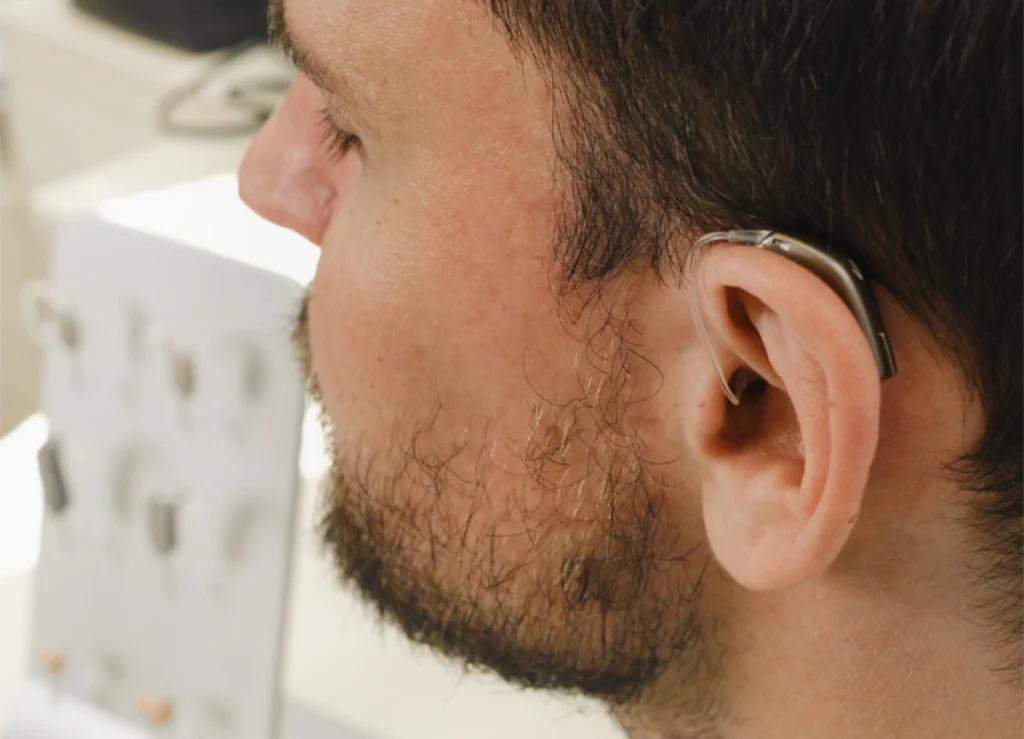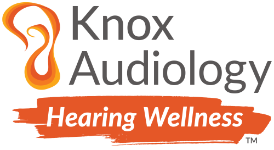Overcoming stigma: Embracing and normalising the use of hearing aids

In today’s rapidly advancing world, technology is reshaping our lives in countless ways, and hearing aids are no exception. Once simple amplifiers, they are now sophisticated tools designed to enhance the quality of life for those experiencing hearing loss. Despite these remarkable innovations, a lingering stigma often surrounds the use of hearing aids.
Contrary to popular belief, hearing aids aren’t just for the elderly or people with perceived disabilities. Hearing loss can affect anyone, regardless of age, lifestyle, or health. Acknowledging this and using hearing aids should be seen as a proactive and empowering choice rather than something to hide from. Overcoming the stigma requires a combination of societal change and personal growth, challenging misconceptions, fostering understanding, and embracing hearing aids as valuable tools for richer, more connected living.
How do we break free from the stigma and start to build confidence and instil living a fulfilling life with hearing loss?
1. Understanding the causes of the stigma
To effectively address the stigma surrounding hearing loss, it is crucial to first understand its origins. Research has revealed that hearing loss stigma is linked to alterations in self-perception, ageism, vanity, and external societal forces like media portrayals and health professionals’ attitudes. Many people still associate hearing aids with aging or inadequacy, even though modern devices have come a long way in design and functionality.
To break these misconceptions, it is important to engage in self-reflection. Ask yourself: What do I believe about hearing aids, and where do these beliefs come from? Once you understand these internal and external pressures, you can begin the process of challenging them. Furthermore, by educating yourself about the reality of hearing loss and its solutions, you can help dispel myths not just for yourself but for others as well. This shift in mindset can help create a more inclusive and understanding environment.
2. Seeking Support and being part of a community
Living with hearing loss can be isolating if you try to navigate it alone. But it doesn’t have to be that way. One of the most effective ways to combat isolation is to seek support from others who understand your experience. Join online communities, local support groups, or organizations dedicated to hearing loss.
By sharing stories, advice, and encouragement, you will realize that you are not alone. The emotional strength that comes from a strong support system can be transformative, helping you overcome the challenges associated with hearing loss while boosting your confidence and motivation.
3. Mastering Communication Strategies
Effective communication is essential for building confidence and maintaining strong relationships, especially when hearing loss is a factor. Fortunately, there are many ways to enhance communication. You can explore options like lip-reading, sign language, or assistive devices such as captioning apps and advanced hearing aid features that improve clarity in noisy environments.
Equally important is educating your friends, family, and colleagues on how best to communicate with you. Whether it’s ensuring they face you while speaking or tapping your shoulder to get your attention, clear communication strategies are key to feeling connected and valued. By taking an active role in conversations and creating an inclusive atmosphere, you will be able to navigate social and professional settings with greater ease and confidence.
4. Be your own advocate
Learning to advocate for yourself is vital when living with hearing loss. This means clearly communicating your needs and preferences in various environments, such as work, social gatherings, or healthcare settings. If you need certain accommodations—like asking someone to repeat themselves or requesting specific seating in a meeting—don’t be afraid to speak up.
Advocacy is not just about asking for help; it is about creating an inclusive space for yourself and others in similar situations. When you assert your boundaries and needs, you empower others to do the same. By being your own advocate, you contribute to a culture that normalizes hearing loss and erases the stigma surrounding it.
5. Cultivating self-confidence
Breaking free from the stigma of hearing aids is not just about changing how others perceive you; it is about transforming how you see yourself. Building your confidence and esteem is a key part of this journey. Focus on your strengths, accomplishments, and the qualities that make you unique. Engage in activities that boost your confidence—whether that is pursuing a hobby, excelling in your career, or cultivating close relationships with positive people.
Remember, hearing aids are just one small part of who you are. They do not define you, and their use is a sign of strength and resourcefulness. As you build your self-esteem, the stigma will lose its grip on you, and you’ll find yourself more capable of navigating the world with confidence.
6. Raising awareness
Perhaps the most powerful tool in dismantling stigma is education. By sharing your experiences and knowledge about hearing loss, you can help change the narrative for others. Seize opportunities to talk openly about your journey—whether it is in casual conversations, at work, or through social media. Focus on the capabilities of individuals with hearing loss rather than their limitations.
When people understand that hearing aids are not a sign of weakness but a testament to modern solutions that improve lives, they are more likely to embrace these tools and the people who use them. Educating others and raising awareness fosters inclusivity and helps pave the way for a more compassionate society.
Redefining the Narrative of Hearing Loss
Overcoming the stigma associated with hearing loss and hearing aids is an ongoing journey that requires resilience, self-advocacy, and a positive mindset. By taking the time to understand where the stigma comes from, seeking support, adopting effective communication strategies, building one’s esteem, and educating others by raising awareness, you can free yourself from the limitations imposed by outdated societal attitudes.
Your hearing aids are not just devices—they are gateways to a fuller, richer life. Embrace it, celebrate your strengths, and let your confidence shine as you navigate the world with clarity, connection, and pride.
Hearing Aid Support from Knox Audiology
At Knox Audiology our team of university-qualified and experienced audiologists are committed to helping you prepare for the festive season. We provide trusted, friendly, and professional hearing services tailored to your unique needs. To learn more, don’t hesitate to reach out to us, call 03 9800 5697 or book online.
